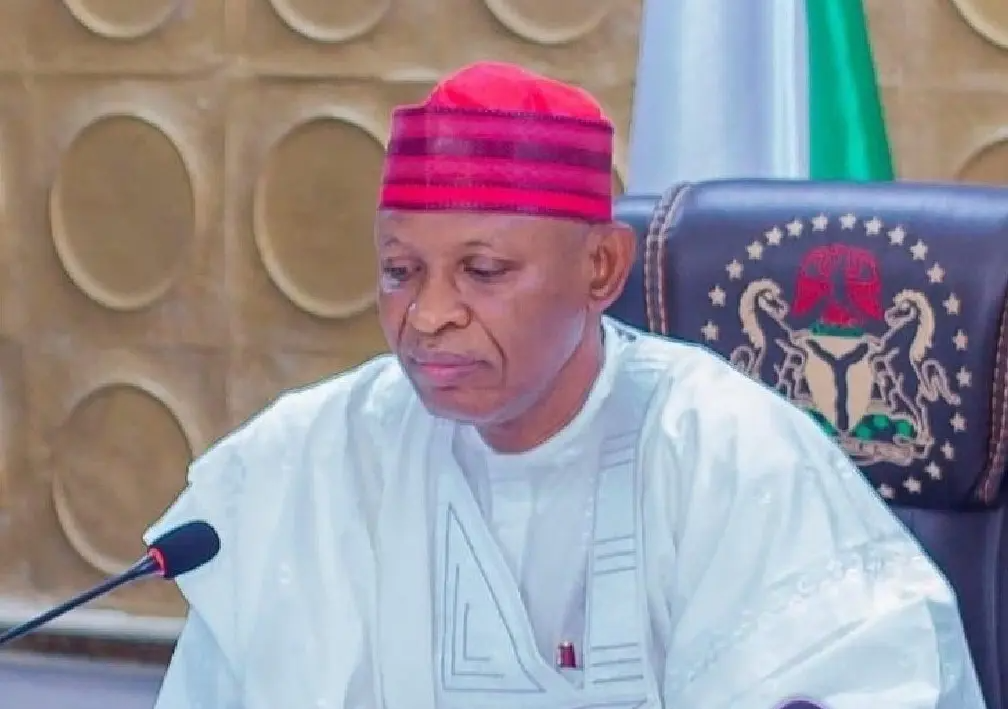The Kano State government has rejected the proposed federal tax reform bills, describing it as “ill-timed, lopsided, and inimical to the unity of the country.”
Governor Abba Kabir Yusuf conveyed this position during the 2025 New Year celebration at the Filin Mahaha, Kofar Naisa open theatre in Kano.
In a statement delivered by his deputy and issued through his Press Secretary, Ibrahim Garba Shuaibu, the governor criticised the proposed tax hike as a misplaced solution to Nigeria’s economic challenges.
“Nigerians, particularly in the North, are grappling with hyperinflation and unprecedented insecurity,” the statement said.
“The presidency should prioritise addressing extreme poverty and hunger, especially in the northern region.”
Governor Yusuf stressed that the proposed tax reforms would worsen citizens’ economic burden, adding, “Kano State stands firmly against any policy that negatively affects the welfare of our people.”
The governor also highlighted his administration’s achievements in healthcare, education, road construction, and foreign scholarship programs, reaffirming its commitment to improving the lives of Kano residents.
The governor used the occasion to reflect on key milestones, including the Supreme Court ruling in January 2024 that affirmed Governor Yusuf’s electoral victory.
He also celebrated Emir Malam Muhammadu Sanusi II’s reinstatement in 2024, calling it a triumph of the people’s will.
“The authority to appoint an Emir lies solely with the Governor of Kano State,” he stated, urging detractors to respect the law and maintain peace.
The deputy governor encouraged Kano residents to stay united and optimistic about the year ahead.
He said, “Let 2025 be a year of shared prosperity and progress. Together, we will build a stronger Kano.”
Also speaking at the event, the Speaker of the Kano State House of Assembly, Honourable Yusuf Jibril Falgore, extended his New Year greetings and called for continued citizen support of the government’s developmental initiatives. Kano State Rejects ‘Ill-Timed’ Tax Reform Bill
The Kano State government has rejected the proposed federal tax reform bill, describing it as “ill-timed, lopsided, and inimical to the unity of the country.”
The State Governor, Abba Kabir Yusuf, conveyed this position during the 2025 New Year celebrations at the Filin Mahaha, Kofar Naisa open theatre in Kano.
In a statement delivered by his deputy and issued through his Press Secretary, Ibrahim Garba Shuaibu, the governor criticised the proposed tax hike as a misplaced solution to Nigeria’s economic challenges.
“Nigerians, particularly in the North, are grappling with hyperinflation and unprecedented insecurity,” the statement said.
“The presidency should prioritise addressing extreme poverty and hunger, especially in the northern region.”
Governor Yusuf stressed that the proposed tax reforms would worsen citizens’ economic burden, adding, “Kano State stands firmly against any policy that negatively affects the welfare of our people.”
The governor also highlighted his administration’s achievements in healthcare, education, road construction, and foreign scholarship programs, reaffirming its commitment to improving the lives of Kano residents.
The governor used the occasion to reflect on key milestones, including the Supreme Court ruling in January 2024 that affirmed Governor Yusuf’s electoral victory.
He also celebrated Emir Malam Muhammadu Sanusi II’s reinstatement in 2024, calling it a triumph of the people’s will.
“The authority to appoint an Emir lies solely with the Governor of Kano State,” he stated, urging detractors to respect the law and maintain peace.
The deputy governor encouraged Kano residents to stay united and optimistic about the year ahead.
He said, “Let 2025 be a year of shared prosperity and progress. Together, we will build a stronger Kano.”
Also speaking at the event, the Speaker of the Kano State House of Assembly, Honourable Yusuf Jibril Falgore, extended his New Year greetings and called for continued citizen support of the government’s developmental initiatives.
